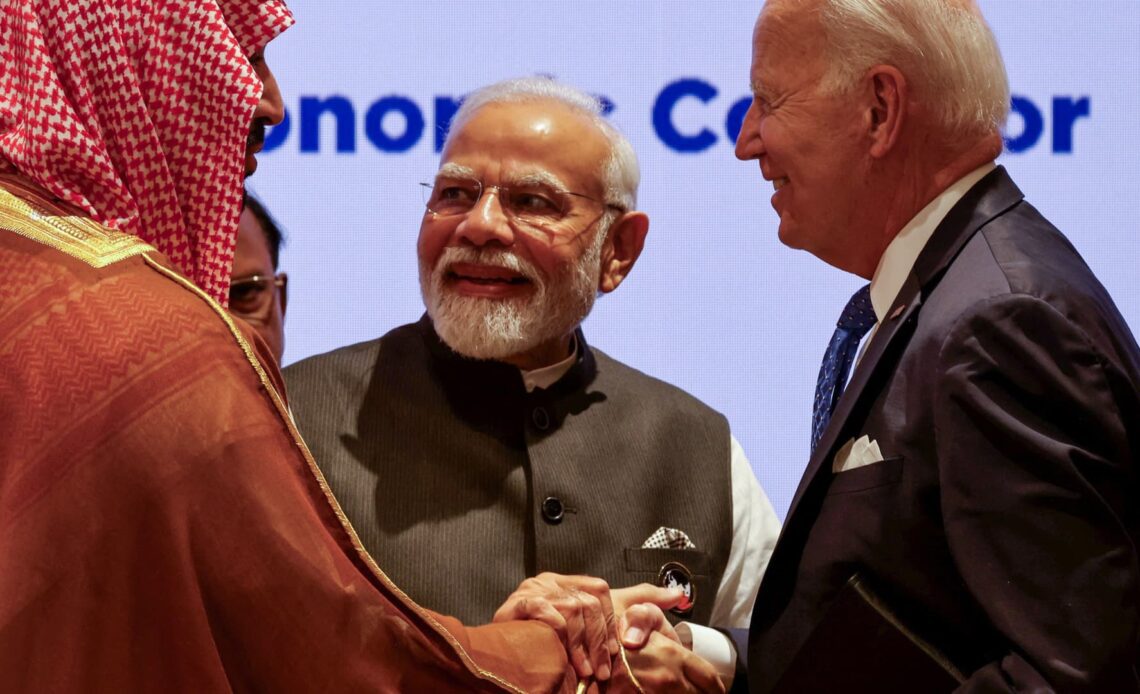Saudi Arabia’s Crown Prince and Prime Minister Mohammed bin Salman (L), India’s Prime Minister Narendra Modi (C) and US President Joe Biden attend a session as part of the G20 Leaders’ Summit at the Bharat Mandapam in New Delhi on September 9, 2023.
Ludovic Marin | Afp | Getty Images
NEW DELHI — Even for those accustomed to the ebbs and flows of the U.S.-Saudi Arabia relationship, the sight of President Joe Biden extending a handshake to Saudi Crown Prince Mohammad bin Salman at the recent G20 leaders’ summit in New Delhi was quite the turnaround.
After all, Biden had warned last October of “consequences” after the Saudi-led oil cartel OPEC decided to cut crude production and boost prices amid Russia’s war in Ukraine.
Roughly a year on, Saudi Arabia is not only one of six new invitees to the China-dominated BRICS coalition, but also a signatory to the Biden-led pact for a ship-to-rail economic corridor linking India with Middle Eastern and European Union countries unveiled on the sidelines of the G20 summit — framed as a counter to China’s decade-old Belt and Road Initiative.
Saudi Arabia’s double dipping underscores the range of economic and strategic opportunities that abound for the various economies caught between the dueling U.S. and China as they build their own alliances and spheres of influence. U.S. and other major Western nations have been keen to “de-risk” their economic — and not decouple — from China on grounds of national security.
This is also consequently leading to a fragmentation of the world’s economy as protectionism and nationalism impede global trade, while giving rise to a complex matrix of relationships in a multipolar world that are not always straightforward as nations pursue their self interests.
“We aren’t heading toward a BRICS vs G7 world,” Ian Bremmer, founder and president of political risk consultancy Eurasia Group, wrote in a note last Monday. G7 refers to the Group of Seven advanced industrialized economies, while BRICS refers to a group of leading developing economies — both are sub-groups within the G20.
“China scored a significant victory at the BRICS summit, securing the invitations of six additional countries to join the group — despite significant concerns from Brazil, India, and South Africa,” he said.
“But almost all the BRICS+ oppose the idea of a China-led organization and don’t want BRICS membership to constrain their existing — and in most cases growing — diplomatic and economic ties with G7…
Click Here to Read the Full Original Article at Top News and Analysis (pro)…


